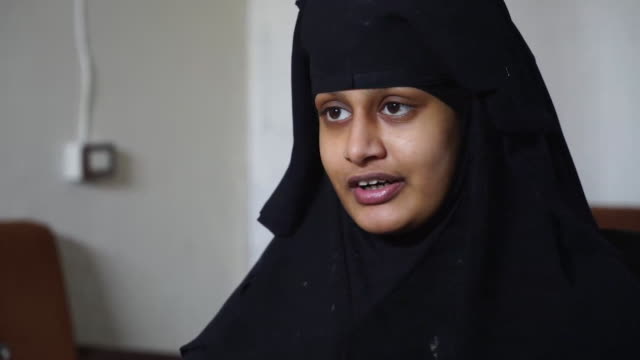Britain considers the destruction of the ISIS terrorist group vital to its national security. It views the ISIS ideology as toxic to national security and opposes the return of its members to the country. The Home Secretary has said that he will take serious measures to prevent the return of Britons who have travelled to join the Islamic State. However, the country itself has played an important role in facilitating their pivot to ISIS.
Who and What Is ISIS in Britain?
Statistics show that most ISIS members in Britain are teenagers between the ages of 15 and 21 who have been dubbed as “The Beatles” because of their English accent. Around 900 British nationals Britain over seven years to join ISIS.
While hundreds have returned home, there are still hundreds more living in Syria; about 20 of these are women and children. The identity of more than 200 is still unknown.
Some of these teenagers are girls who are pregnant and want to return home. Others have been accused of torturing and beheading Americans and Europeans in Syria.
Most of them now have regrets and want to return to their country. They want a fair deal and another chance, and they are asking Britain to accept their apology.
The British Minister of State for Security did not take strict measures when the British youth were joining ISIS, but now they warn that fugitives who want to return should know that there are criminal consequences.
Above all, Britain seeks to prevent them from entering the country, which seems to be against international law.
What Does Private International Law Say?
Under private international law, these adolescents must be allowed to return home, despite having acquired a second citizenship in another country. Because according to international law, a person cannot be “stateless”.
Human Rights groups say the government’s plan to ban British jihadists from re-entering Britain will lead to them becoming stateless.Top of Form
It is the duty of governments to try to solve the problems of their citizens. Destroying their national identity is a punishment without trial.
Seeing these suspicious citizens as toxic waste means that the government is being irresponsible towards the international community and the law.
If the values of British society are strong enough, there must be another opportunity to attract these , offline teenagers.
Although some British people are angry with these teenagers and do not want their return to Britain, and this is understandable, according to British law, they were children who went to Syria and they should be given a second chance.
Of course, it should be kept in mind that the role of social structures and laws in the emergence of British ISIS cannot to be overlooked.
The Role of British Institutional Structures in the Emergence of ISIS
It should be noted that those who left Britain to join ISIS hated their country because of discrimination, feelings of defeat, and the like, when they decided to join this evil group.
We must look for the roots of this problem and the incomplete and discriminatory structures of Britain through which ISIS can attract its citizens.
We have to fight the reasons causing the emergence of ISIS in Britain.
In fact, the structure, laws and principles of Britain push these people towards accepting the terrible ideology.
If focus is placed on preventing them from entering the UK instead of reforming discriminatory laws and structures, the country will face negative social and security consequences.
The Social and Security Implications of a Ban on the Return of British ISIS Members to the Country
The main reasons for the British government’s opposition to the return of ISIS members to the country are their continued membership in this terrorist organisation on the one hand, and the promotion of the takfiri group values on the other.
British civil liberties are endangered further with such bans. This method, instead of encouraging British ISIS citizens to enforce the law against them, leads to more radicalization of their activities online.
The premise of this type of law is that these people are guilty until proven innocent. It seems that the government should refrain from overemphasizing the anti-terrorism law, which many interpret as undemocratic.
A Solution to Eliminate Security Threats
Prohibiting the return of its citizen and taking away their citizenship and passports will not keep Britain safe from terrorism.
In fact, not only will it not save police and security services time and money, it will incur additional costs on them.
Security must be based on information, evidence and justice. Public safety should always be a priority. But the British authorities must avoid double standards. Public safety must be for everyone.
The way out of this security crisis for the intelligence services is to implement measures such as a no-fly list.
The UK should seek a clear legal framework for tracking suspicious passengers. For example, in the section on data protection laws, the delivery of personal information, such as credit card number and address, should be an exception to this rule.
The emergence of takfiri and Salafi ideologies seems to be rooted in unjust structures and rigid social norms. To eliminate terrorism, Britain must examine the roots of the emergence of the takfiri ideology. This means redefining the laws, institutions, procedures, principles, laws and all frameworks that isolate individuals in society. Otherwise, ISIS and radicalism will continue to persist.

